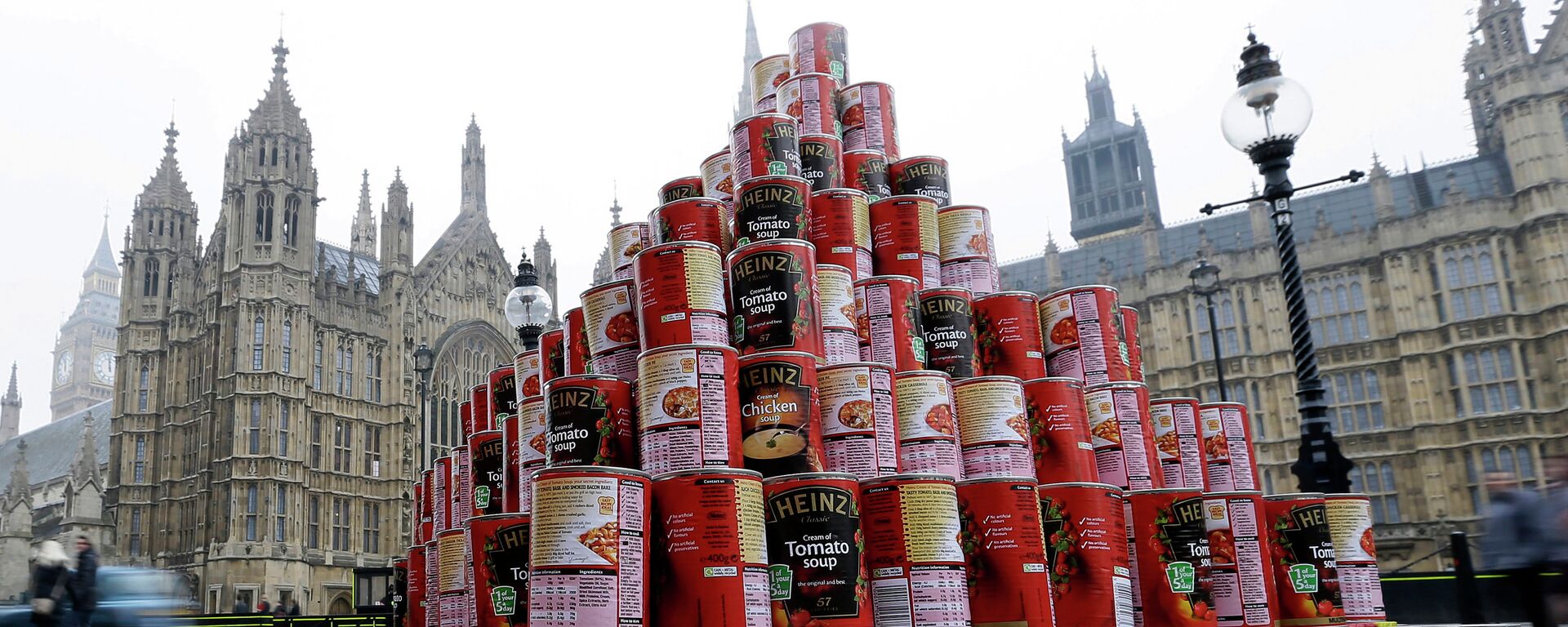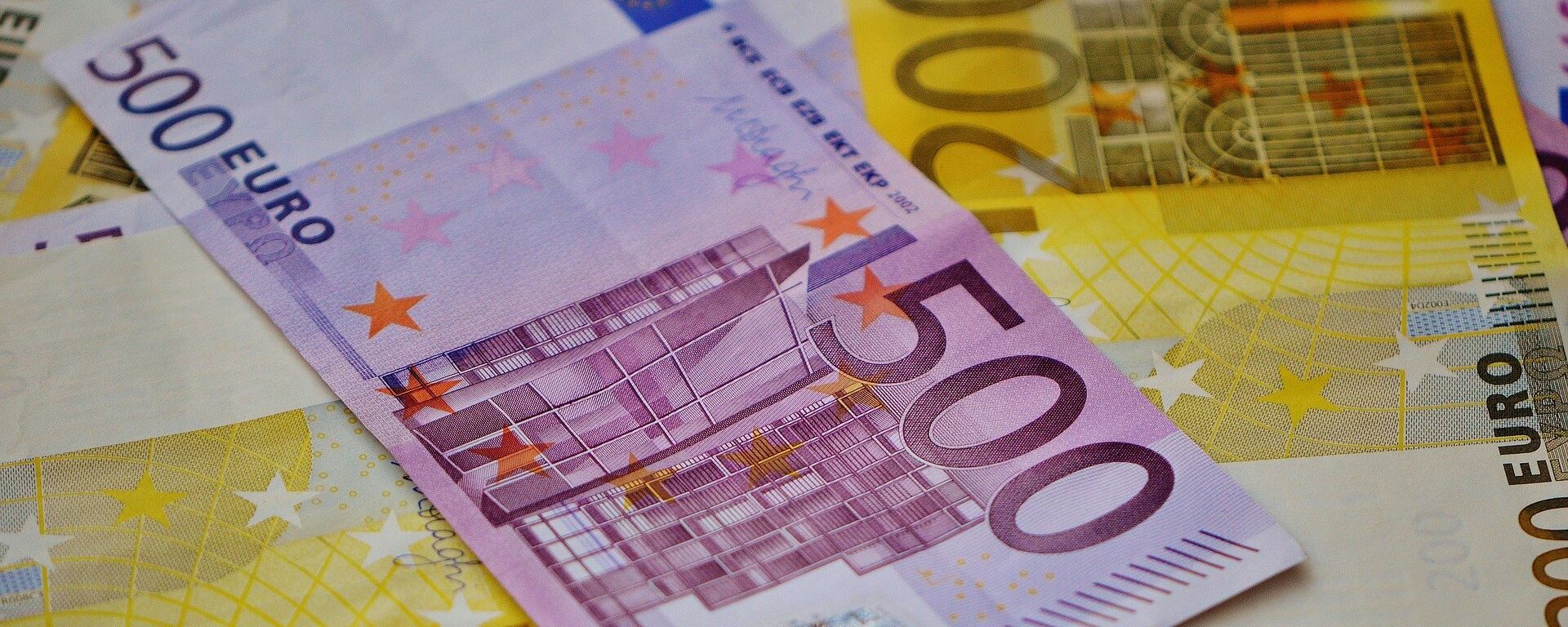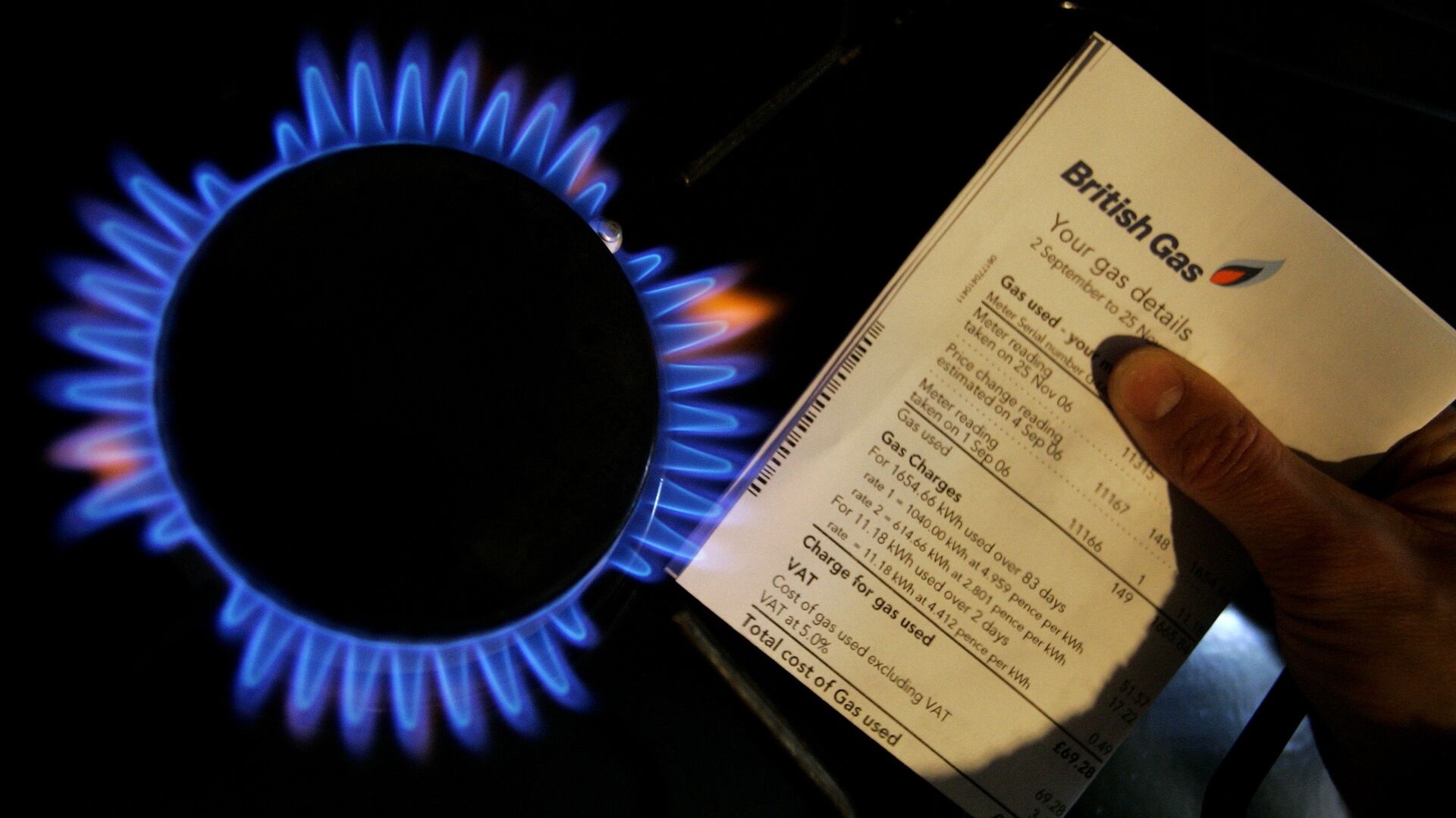https://sputnikglobe.com/20230221/struggling-uk-households-spent-800-more-on-gas-in-past-12-months-amid-energy-crisis-study-shows-1107647897.html
Struggling UK Households Spent £800 More on Gas in Past 12 Months Amid Energy Crisis, Study Shows
Struggling UK Households Spent £800 More on Gas in Past 12 Months Amid Energy Crisis, Study Shows
Sputnik International
UK households spent £800 more on wholesale gas in the past 12 months amid energy crisis, a study showed.
2023-02-21T08:17+0000
2023-02-21T08:17+0000
2023-05-28T15:25+0000
energy crisis in europe
gas
energy crisis
ukraine crisis
sanctions
united kingdom (uk)
https://cdn1.img.sputnikglobe.com/img/105936/86/1059368607_0:224:3300:2080_1920x0_80_0_0_b00540f1361a0b879859bcdb7e2111b9.jpg
Amid the raging energy crisis, the average British household has spent £1,000 ($1,202) on wholesale gas over the past 12 months - £800 more than in a typical year, a UK non-profit organization has estimated. Struggling UK households have been forced to pay much higher bills now, a study by the Energy and Climate Intelligence Unit (ECIU).According to ECIU, high wholesale gas prices, which were driven, in part, by a fall-out from the West's self-destructive sanctions on Russia over its special military operation in Ukraine, cost UK energy suppliers an additional £50Bln to £60Bln in costs. This is estimated to be six times higher than annual costs typical before the COVID-19 pandemic and the energy crisis. The Ukraine crisis, the non-profit acknowledged, had stirred up "unprecedented turmoil in international gas markets, with supply restrictions and sanctions… contributing to record wholesale prices and significant volatility."The organization underscored that gas prices had reached record highs in March and August, and although they subsequently fell towards the end of 2022, the fact that they hovered at around three times their historical levels meant crippling bills for households across the country.At this point, the non-profit organization made mention of last year’s clarification by the International Monetary Fund (IMF) regarding why UK households found themselves the worst-hit of all countries in western Europe.Gas is used in the UK to heat 85 percent of its homes, and to generate about 40 percent of its electricity.If the UK had shown more determination to attain net zero by improving housing efficiency, producing more wind power and deploying heat-pump technology, it could have resulted in a typical household boasting savings of up to £1,750 in 2022, the ECIU research suggested.The new research comes as just last week a study warned that the cost of living crisis could push up to 141 million more people around the world into extreme poverty.Modelling by an international collaboration of scientists published in Nature Energy was based on the cost of energy for households globally estimated as having increased by between 62.6 percent and 112.9 percent, with the prices pummeling family finances.In the UK itself, almost 40 percent of the households regularly struggle to pay for essentials, another survey discovered, reaching the end of a month with barely any money to spend.Some 24 percent of those surveyed run out of money for essentials "most months or most days", according to the assessment by 'Together Through This Crisis' - an initiative comprising the charities Save the Children, Shelter, Turn2us, Little Village and 38 Degrees. Weighing in on the research, Matthew McGregor, the chief executive of 38 Degrees, was cited as saying: Charities penned an open letter to the UK Prime Minister, Rishi Sunak, and Jeremy Hunt, the Chancellor of the Exchequer, urging the continuation of energy bill support; prioritising families receiving universal credit or equivalent benefits, and a spate of other measures tailored to cushion the effect of the cost of living crisis."Stop kids going hungry, end the energy bill ticking timebomb, and relieve the sickening worry from families fearing the worst,” the charities pleaded.
https://sputnikglobe.com/20221227/uk-retailers-likely-to-bear-brunt-of-raging-cost-of-living-crisis-1105823319.html
https://sputnikglobe.com/20230219/number-of-britons-turning-to-food-banks-skyrockets-amid-cost-of-living-crisis-study-shows-1107587717.html
https://sputnikglobe.com/20230213/european-countries-racked-up-nearly-800-bln-energy-crisis-spending-bill-brussels-think-tank-says-1107376695.html
united kingdom (uk)
Sputnik International
feedback@sputniknews.com
+74956456601
MIA „Rossiya Segodnya“
2023
News
en_EN
Sputnik International
feedback@sputniknews.com
+74956456601
MIA „Rossiya Segodnya“
Sputnik International
feedback@sputniknews.com
+74956456601
MIA „Rossiya Segodnya“
raging energy crisis, average british household, spent £1,000 on wholesale gas over the past 12 months, £800 more than in a typical year, study by uk non-profit, energy and climate intelligence unit (eciu), higher bills, cost of living crisis, high wholesale gas prices, fallout from western self-destructive sanctions on russia, uk energy suppliers, additional £50bn to 60bn in costs, uk households worst-hit, uk dependent on gas, net zero,
raging energy crisis, average british household, spent £1,000 on wholesale gas over the past 12 months, £800 more than in a typical year, study by uk non-profit, energy and climate intelligence unit (eciu), higher bills, cost of living crisis, high wholesale gas prices, fallout from western self-destructive sanctions on russia, uk energy suppliers, additional £50bn to 60bn in costs, uk households worst-hit, uk dependent on gas, net zero,
Struggling UK Households Spent £800 More on Gas in Past 12 Months Amid Energy Crisis, Study Shows
08:17 GMT 21.02.2023 (Updated: 15:25 GMT 28.05.2023) As anti-Russian sanctions imposed soon after the start of Moscow’s special military operation in Ukraine in February 2022 backfired on European economies, accelerated inflation, and prompted energy prices to soar, up to 141 million more people around the world could be driven to extreme poverty, an international group of scientists has warned.
Amid the raging
energy crisis, the average British household has spent £1,000 ($1,202) on wholesale gas over the past 12 months - £800 more than in a typical year, a UK non-profit organization has
estimated.
Struggling UK households have been forced to pay much higher bills now, a study by the Energy and Climate Intelligence Unit (ECIU).
According to ECIU, high wholesale gas prices, which were driven, in part, by a fall-out from the West's
self-destructive sanctions on Russia over its special military operation in Ukraine, cost UK energy suppliers an additional £50Bln to £60Bln in costs. This is estimated to be six times higher than annual costs typical before the COVID-19 pandemic and the energy crisis. The Ukraine crisis, the non-profit acknowledged, had stirred up "
unprecedented turmoil in international gas markets, with supply restrictions and sanctions… contributing to record wholesale prices and significant volatility."The organization underscored that gas prices had reached record highs in March and August, and although they subsequently fell towards the end of 2022, the fact that they hovered at around three times their historical levels meant crippling bills for households across the country.
"Retail prices have not yet reached their peak in 2023. And neither wholesale nor retail gas prices are likely to fall back to their pre-crisis levels during this decade, if ever," the ECIU warned.
At this point, the non-profit organization made mention of last year’s clarification by the International Monetary Fund (IMF) regarding why UK households found themselves the worst-hit of all countries in western Europe.
“As the IMF has pointed out, the energy crisis hit UK households harder than those in other western European countries because, as a nation, we’re incredibly dependent on gas. The price of gas is largely set by international markets, so the only way to protect yourself is to use less," Dr Simon Cran-McGreehin, the head of analysis at the ECIU, stated.
Gas is used in the UK to heat 85 percent of its homes, and to generate about 40 percent of its electricity.

27 December 2022, 14:40 GMT
If the UK had shown more determination to attain net zero by improving housing efficiency, producing more wind power and deploying heat-pump technology, it could have resulted in a typical household boasting savings of up to £1,750 in 2022, the ECIU research suggested.
“The onshore wind ban has been one of the barriers to this. We’re also running behind places such as Sweden, Poland and Estonia on installing electric heat pumps,” Cran-McGreehin added.
The new research comes as just last week
a study warned that the
cost of living crisis could push up to 141 million more people around the world into extreme poverty.
Modelling by an international collaboration of scientists published in Nature Energy was based on the cost of energy for households globally estimated as having increased by between 62.6 percent and 112.9 percent, with the prices pummeling family finances.

19 February 2023, 06:11 GMT
In the UK itself, almost 40 percent of the households regularly struggle to pay for essentials, another survey discovered, reaching the end of a month with barely any money to spend.
Some 24 percent of those surveyed run out of money for essentials "most months or most days", according to the assessment by 'Together Through This Crisis' - an initiative comprising the charities Save the Children, Shelter, Turn2us, Little Village and 38 Degrees. Weighing in on the research, Matthew McGregor, the chief executive of 38 Degrees, was cited as saying:
"This polling paints a bleak picture of the crisis unfolding across the country: families running out of money to put food on the table and keep kids warm is rapidly becoming our new normal."

13 February 2023, 13:35 GMT
Charities penned an open letter to the UK Prime Minister, Rishi Sunak, and Jeremy Hunt, the Chancellor of the Exchequer, urging the continuation of energy bill support; prioritising families receiving universal credit or equivalent benefits, and a spate of other measures tailored to cushion the effect of the cost of living crisis.
"Stop kids going hungry, end the energy bill ticking timebomb, and relieve the sickening worry from families fearing the worst,” the charities pleaded.





